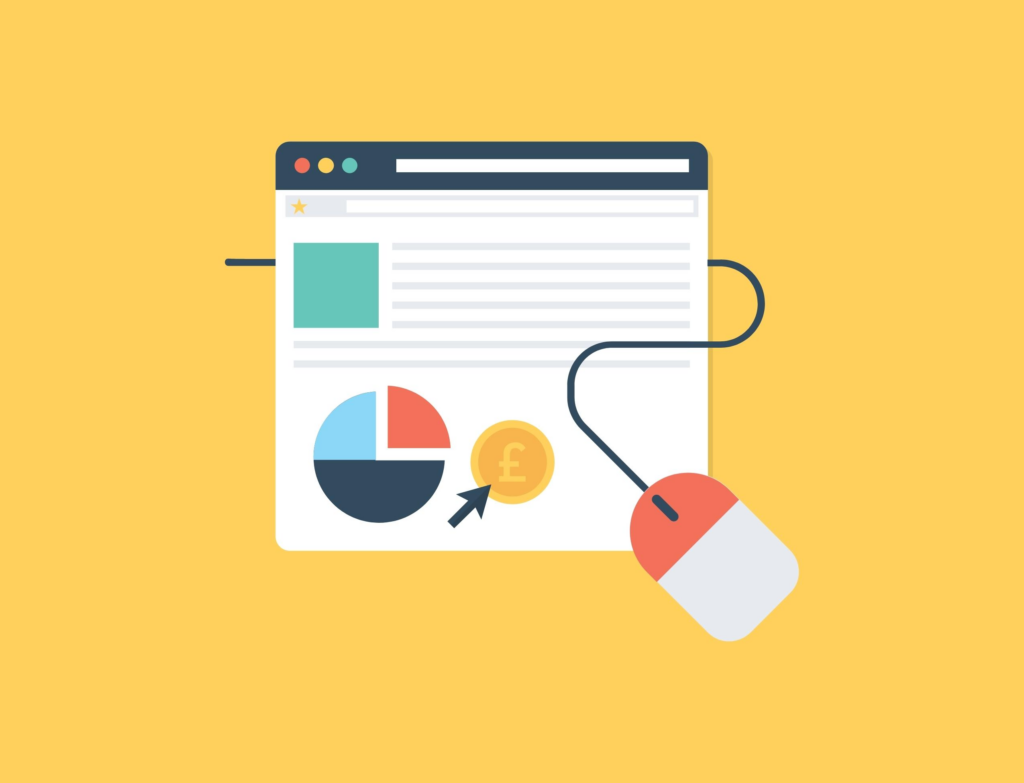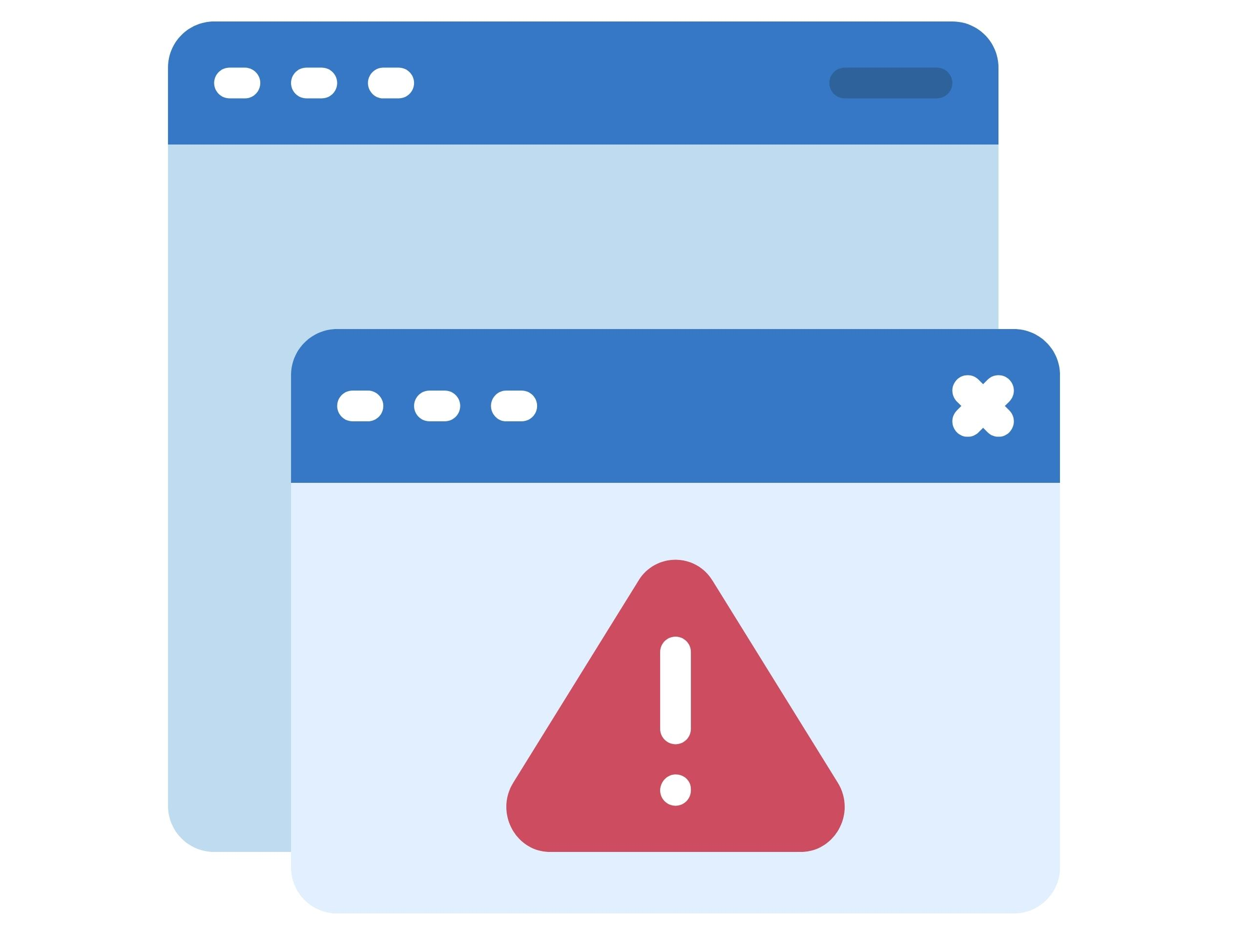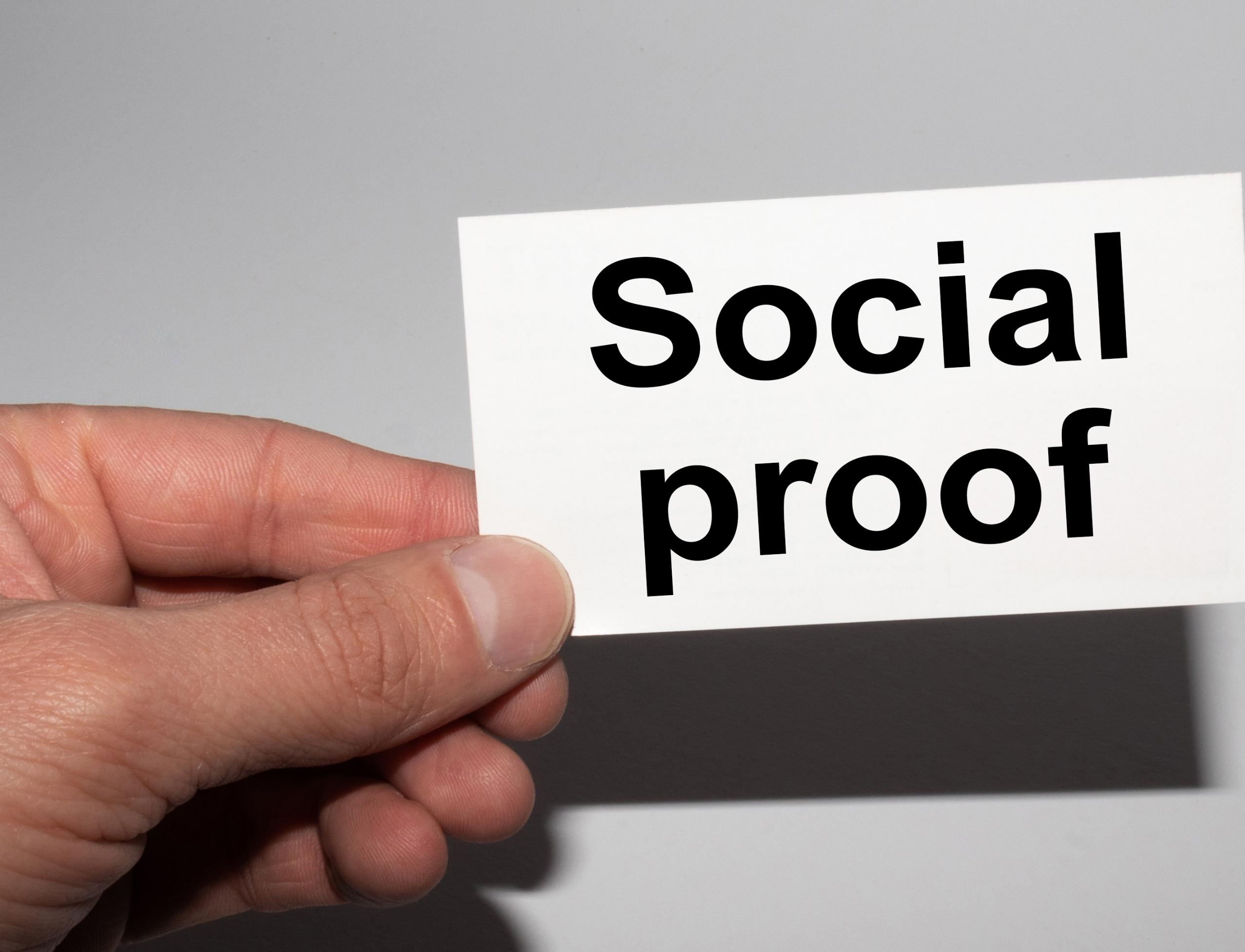What Does EPC Stand For In Affiliate Marketing? [14 Ways To Make More Money]

When you buy something through one of the links on our site, we may earn an affiliate commission.
So, what does EPC stand for in affiliate marketing?
First, welcome to the exciting and lucrative world of affiliate marketing! You can promote other people's products and services as an affiliate marketer in exchange for a commission on each sale.
The affiliate marketing industry is projected to reach $36.9 Billion by 2030. That's a lot of potential commissions waiting to be earned!
While there are many different ways to go about this, one of the most important things you can do is learn the lingo. One term you'll undoubtedly hear frequently is EPC, or earnings per click.
In this article, we'll explain what EPC means and how it can help you determine whether or not a particular offer is worth promoting. We'll also give tips on increasing your EPC to make more money as an affiliate marketer. Let's get started!
Contents
- What Does EPC Mean?
- How to Calculate Your EPC?
- Why is EPC Important?
- 16 Ways to Increase Your EPC
- 1. Promote high-converting offers To Increase Your EPC.
- 2. Use effective marketing methods.
- 3. Target the right audience.
- 4. Offer incentives.
- 5. Make it easy to buy.
- 6. Provide great customer service.
- 7. Keep your promises.
- 8. Create a non-intrusive floating bar.
- 9. Use pop-ups sparingly.
- 10. Take responsibility for your actions.
- 11. Embed affiliate links in email series
- 12. Use social media to promote your affiliate links
- 13. Use paid advertising to promote your affiliate links
- 14. Use social proof.
- 15. Use retargeting
- 16. Give away freebies
- What is EPC in Clickbank?
- What is the difference between CPC and EPC?
- What does CPC mean in affiliate marketing?
- How is CPC calculated?
- What is a good EPC?
- What does CPC mean in affiliate marketing: Conclusion
What Does EPC Mean?

In marketing, EPC stands for earnings per click. In other words, it's the amount of money that you can expect to earn each time someone clicks on your affiliate link.
For example, let's say you're promoting a product that pays $10 per sale and has a 1% conversion rate. That means one of every 100 people who click on your affiliate link will buy the product. In this case, your EPC would be $0.10.
However, not all offers are created equal. Some may have a higher price point but a lower conversion rate, while others may have a lower price point but a higher conversion rate.
That's why it's essential to calculate your EPC for each offer that you promote.
How to Calculate Your EPC?

Calculating your EPC is simple. Just take the total amount of money you've earned from a particular offer and divide it by the number of clicks you've received.
For example, let's say you've earned $100 from an offer and received 1000 clicks. In this case, your EPC would be $0.10.
Keep in mind that your EPC will fluctuate over time. For example, if you start with a small number of clicks but then get a significant spike in traffic, your EPC will go up.
Similarly, if you have a lot of people clicking on your affiliate links but not many of them are buying the product, your EPC will go down.
Why is EPC Important?
As an affiliate marketer, it's important to always be on the lookout for offers with a high EPC.
That's because the higher your EPC, the more money you'll make for each click.
For example, let's say you're promoting two different products. Product A has an EPC of $0.10, and product B has an EPC of $0.20. You'll make twice as much money from product B if you get the same number of clicks for both products.
Of course, it's not always that simple. Sometimes an offer with a lower EPC may convert better than one with a higher EPC. That's why it's essential to experiment with different offers to see which ones perform the best for you.
16 Ways to Increase Your EPC

There are a few different things that you can do to increase your affiliate marketing earnings per click.
1. Promote high-converting offers To Increase Your EPC.
One of the best ways to increase your EPC is to promote offers with a high conversion rate. The higher the conversion rate, the more money you and your affiliate partners will make per click.
To find high-converting offers, you can either look for affiliate programs that specifically state their conversion rate or do some research on your own.
A good start is with reviews of the product or service you're promoting. If people say they had a great experience and would buy again, that's a good sign that the offer is worth promoting.
2. Use effective marketing methods.
With affiliate marketing, how you promote the offer is just as important as the offer itself. If you're not using effective affiliate schemes, you're not going to make very much money, no matter how great the offer is.
There are a lot of different marketing methods that you can use, but some of the most effective include email marketing, pay-per-click advertising, and social media marketing, to create a foolproof affiliate marketing funnel.
3. Target the right audience.

It's also essential to ensure you're targeting the right audience with your marketing efforts. If you're promoting a product or service that's not relevant to your target audience, they will not be interested in it, no matter how well you market it.
For example, if you're a pet supply company, you're not going to have much success promoting your products to people who don't own pets. On the other hand, if you target pet owners with your marketing, you're much more likely to make sales.
4. Offer incentives.
Having a great product or service is essential, but it's not the only thing that matters.
You also need to give people a reason to buy from you instead of your competition.
One way to do this is by offering incentives, such as discounts, coupons, or free shipping. If people know they're getting a good deal, they're much more likely to purchase.
5. Make it easy to buy.
You need to make it possible for people to buy the product or service you're promoting. If the buying process is complicated or takes too long, people will give up and look for something else.
To make it easy to buy, you need to have a well-designed affiliate website that's easy to navigate. You also need to have a payment system in place that's quick and efficient.
6. Provide great customer service.

Even if people do buy from you, they're not going to be happy if they don't receive good customer service. If you want people to keep coming back, you need to ensure they're always happy with their purchases.
To do this, you need a team of customer service representatives who are always available to help. A worthwhile offer will already have this system in place for you.
Also, you also need to have a returns policy in place if people are unsatisfied with their purchases.
7. Keep your promises.
It's essential always to keep your promises, both when you're making them and after you've made them. If you tell people they will get a specific product or service, you must ensure they get it.
And if you say that you're going to do something, such as provide a refund or exchange an item, you need to follow through. If you don't, people will not trust you and will not want to do affiliate business with you.
8. Create a non-intrusive floating bar.
A floating bar is a great way to keep people on your website longer and increase your chances of making a sale.
It's a small bar that appears at the bottom of the screen and stays there as people scroll down. You can use it to promote your products, special deals, or anything else.
There are a few things to keep in mind when creating a floating bar in affiliate marketing networks:
- Make sure it's not too intrusive. People should be able to see the content on your affiliate websites without having the bar in their way.
- Keep the message short and sweet. People will only read it if it's interesting, so make sure you have a strong call to action.
- Use images or videos to grab attention. People are likelier to notice a floating bar if it has an image or video than if it's just text.
- Test it out before you launch. Make sure the floating bar appears where you want it to and works properly.
- Monitor your results. Floating bars can be a great way to increase sales, but they can also annoy people if they're not done right. Pay attention to your click-through rate and make changes if necessary.
9. Use pop-ups sparingly.

Pop-ups can be effective, but you need to use them sparingly.
If you use too many, people are going to get annoyed, and they're going to leave your website, which may affect your affiliate marketing revenue.
The key is to use pop-ups that are relevant and not intrusive. For example, you might use a pop-up to offer a discount to people about to leave your website.
10. Take responsibility for your actions.
If something goes wrong, it's important to take responsibility for it. This shows that you're willing to admit when you make a mistake and that you're willing to make things right.
People in affiliate networks will respect you more if you take responsibility for your actions, even if they don't always agree with them. And they're also more likely to do business with you in the future.
11. Embed affiliate links in email series
If you're running an email marketing campaign, you should embed your affiliate links in the emails. This way, people can click on them and be taken to your website.
You should also include a call to action in the email, such as "Click here to claim your 40% off discount." This will encourage people to click on the link and learn more about the product or service that you're promoting.
For example, if you're promoting a product that helps people lose weight, your email might say, "Lose weight without dieting or exercising! Click here to claim your 40% off discount."
Including affiliate links in your email campaigns is a great way to make money, but you need to ensure that you're doing it in a way that will encourage people to click on them. Include a call to action and make the link easy to find.

Social media is a great affiliate marketing strategy to promote your affiliate links. You can share them on your Twitter, Facebook, and Instagram account (check out our guide on Instagram Affiliate Marketing). You can also include them in your blog posts and other content. But you have to do it strategically and tastefully. Check out our guide on how to not promote affiliate links on Facebook.
Make sure to use relevant hashtags so that people can find your posts. And be sure to include a call to action so that people know what they should do when they see your post.
Since social media is all about engagement, you should also try to engage with other people promoting similar products. You can build relationships and get more people to click on your affiliate links.
And if you make videos, also make sure to check out our guide to YouTube affiliate marketing.
13. Use paid advertising to promote your affiliate links
Paid advertising is a great way to get your affiliate links in front of more people. You can use Google AdWords or Facebook Ads to get your links in front of people who are interested in what you're promoting.
Paid advertising can be very effective, but it can also be expensive. So, you need to weigh the pros and cons before you decide if it's right for you.
For example, paid advertising may be worth the investment if you're promoting a product with a high conversion rate. But, if you're promoting an affiliate product with a low conversion rate, then it may not be worth the investment.
When you're using paid advertising to promote your affiliate links, you need to be careful not to overdo it. You don't want to spend more money on advertising than you're making from affiliate commissions.

Social proof is a powerful tool that you can use to increase sales. It's the idea that people are more likely to buy something if they see that others have bought it.
There are a few different ways to use social proof:
- Customer testimonials. Having customers write testimonials is a great way to show potential buyers that your products or services are legitimate.
- Case studies. If you have case studies of people who have used your products or services, showcase them on your website.
- Social media reviews. You can also use social media to your advantage by asking customers to leave reviews on your page.
- Product photos. If you have photos of people using your products, include them on your website.
- Customer quotes. You can also use customer quotes to show social proof. Ensure that the quote is positive and that it's from a legitimate source.
15. Use retargeting
Retargeting is a great way to get people to return to your website and buy something they've been interested in. It's a form of advertising that allows you to target people who have visited your site.
There are a few different ways to do retargeting:
- Facebook ads. You can use Facebook ads to retarget people who have visited your website. Just create a custom audience and then create your ad.
- Google AdWords. You can also use Google AdWords to retarget people who have visited your website. Just create a campaign and then add the people who have visited your site to your list of targets.
- Bing ads. Bing ads also allow you to retarget people who have visited your website. Just create a campaign and then add the people who have visited your site to your list of targets.
16. Give away freebies

Many affiliate marketing sites consider giving away freebies as a great way to get people to sign up for your affiliate program. People love free stuff, so they're more likely to sign up if you give them something for free.
There are a few different ways to give away freebies:
- eBooks. You can give away eBooks on your website. Just make sure they're relevant to your niche and provide value to the reader.
- Courses. You can also create courses and give them away for free. Again, make sure they're relevant to your niche and provide value to the student.
- Cheatsheets. Cheatsheets are another great way to give away freebies. Just make sure they're relevant to your niche and provide value to the reader.
What is EPC in Clickbank?
EPC stands for Earnings Per Click. It is a metric used by an affiliate program's partner to determine the average amount of money earned per click on an affiliate link.
The EPC is calculated by taking the total amount of money earned by an affiliate from a particular offer and dividing it by the number of clicks on their affiliate link.
What is the difference between CPC and EPC?
CPC stands for Cost Per Click. It is the amount of money that an advertiser pays an affiliate for each click on their affiliate link.
On the other hand, EPC is the amount of money an affiliate earns from a particular offer. CPC determines how much an advertiser is willing to pay for each click on an affiliate link. In contrast, EPC determines how much an affiliate can expect to earn from a particular offer.
What does CPC mean in affiliate marketing?
CPC stands for Cost Per Click. It is the amount of money that an advertiser pays to an affiliate for each click on their affiliate link in the CPC affiliate programs. The CPC is generally lower than the EPC because the affiliate is only paid if a sale is made.
How is CPC calculated?
It's calculated by taking the total amount of money paid by an advertiser to an affiliate for a particular offer and dividing it by the number of clicks on their affiliate link. Suppose an advertiser pays an affiliate $100 for each sale made through their affiliate link. If the affiliate generates 10 sales, the CPC would be $10.
What is a good EPC?
The average EPC will vary depending on the industry, but an EPC of $1 or more is a good rule of thumb.
What does CPC mean in affiliate marketing: Conclusion
EPC is a critical metric for affiliate marketers, as it allows them to see how much money they make per click. There are a few different things that you can do to increase your EPC, such as using relevant keywords, using effective calls to action, and using social proof.
Now that you know what EPC stands for in affiliate marketing, it's time to increase your EPC and make more money with the affiliate marketing model.
For related reading, check out:
Want to learn step-by-step how I built my Niche Site Empire up to a full-time income?
Yes! I Love to Learn
Learn How I Built My Niche Site Empire to a Full-time Income
- How to Pick the Right Keywords at the START, and avoid the losers
- How to Scale and Outsource 90% of the Work, Allowing Your Empire to GROW Without You
- How to Build a Site That Gets REAL TRAFFIC FROM GOOGLE (every. single. day.)
- Subscribe to the Niche Pursuits Newsletter delivered with value 3X per week
My top recommendations
















